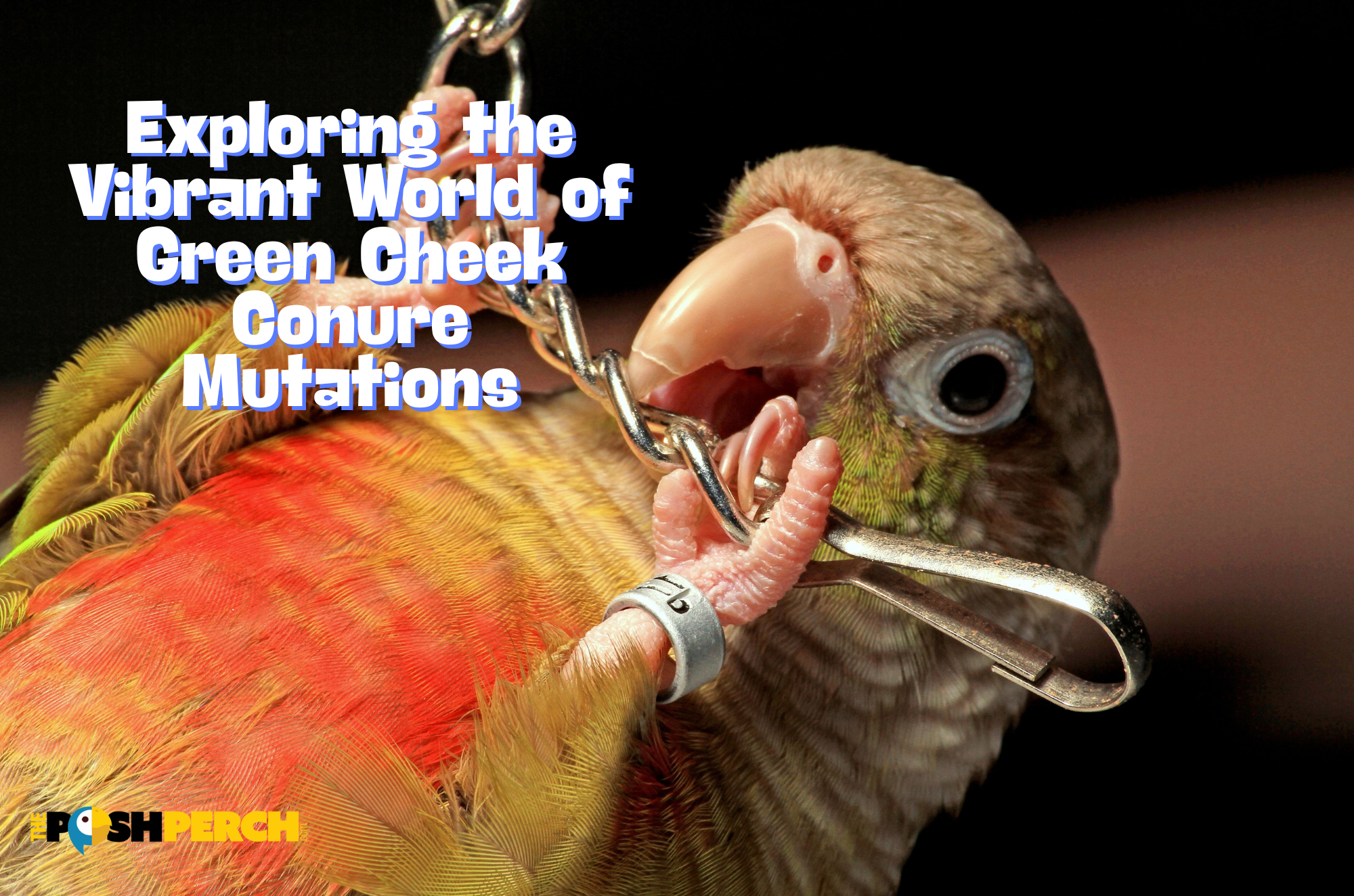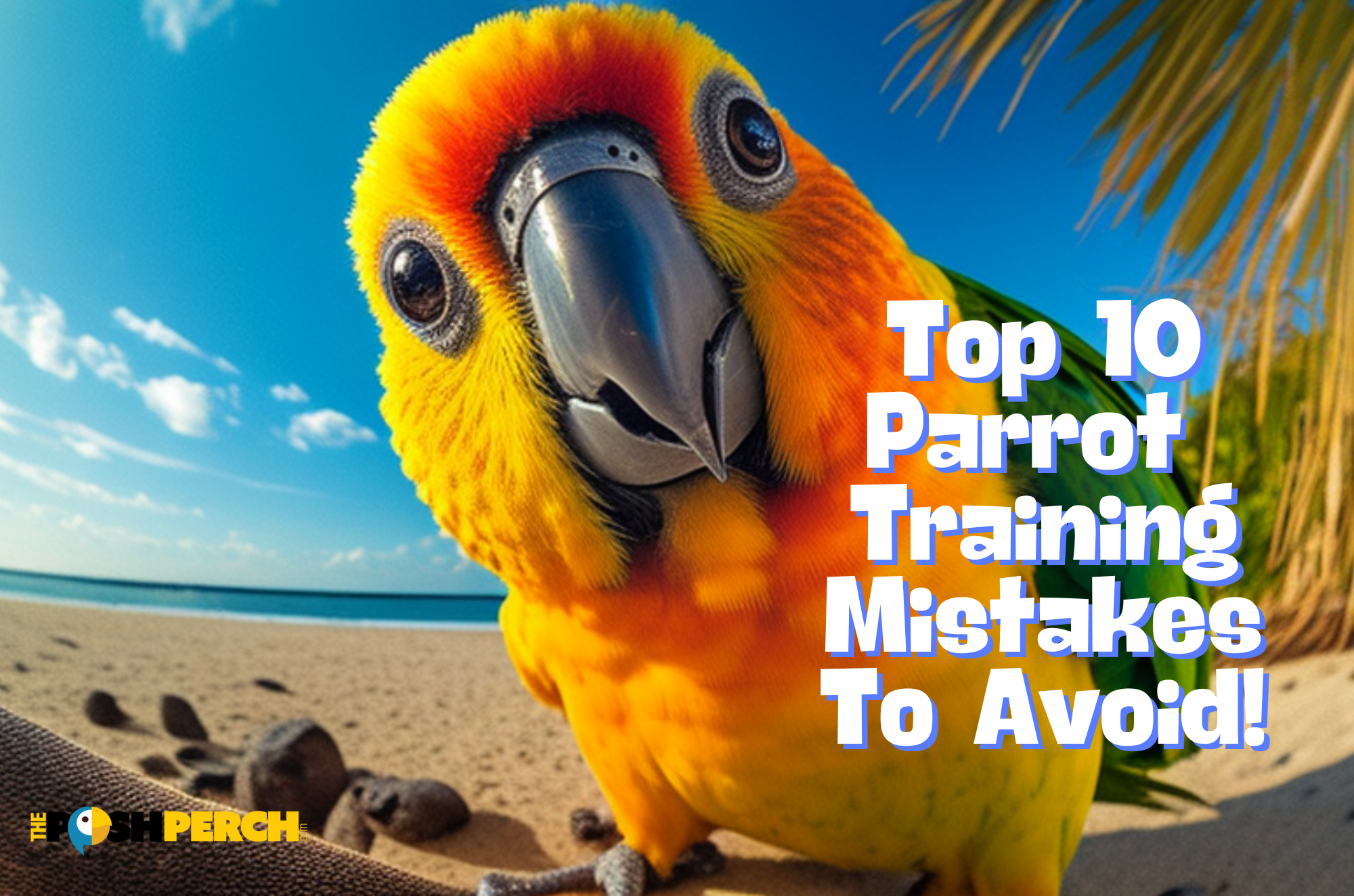
The Care and Training of Green Cheek Conures: A Comprehensive Guide for Owners
3 min reading time

3 min reading time
Are green cheek conures hard to care for?
Green cheek conures, also known as green cheeked parakeets, are small, intelligent, and energetic parrots native to South America. They are known for their playful and social personalities, making them popular pets among bird enthusiasts. But are they hard to care for?
Overall, green cheek conures are not particularly difficult to care for as long as their basic needs are met. They require a varied diet of seeds, pellets, fruits, and vegetables, and they need a clean and spacious cage to live in. Green cheek conures also need daily socialization and mental and physical stimulation to keep them happy and healthy.
Like all pets, green cheek conures do require a certain level of time and effort to care for. They need to be fed and watered daily, and their cage needs to be cleaned regularly. They also need regular visits to an avian veterinarian for check-ups and any necessary medical care.
One potential challenge in green cheek conure care is dealing with behavior issues. Green cheek conures can be vocal and may make loud noises, particularly during periods of excitement or when they are seeking attention. They can also be stubborn and may require patience and consistency when training. However, with proper training and socialization, these behaviors can be managed.
Diet: Green cheek conures require a varied diet of seeds, pellets, fruits, and vegetables to meet their nutritional needs. It is important to offer a variety of foods and to avoid overfeeding seeds, as this can lead to health problems. Green cheek conures also need a constant supply of clean, fresh water.
Housing: Green cheek conures need a clean and spacious cage to live in. The minimum recommended size for a green cheek conure cage is 24 inches by 24 inches by 24 inches, but larger is always better. The cage should be equipped with perches, toys, and other items to provide mental and physical stimulation. It is also important to place the cage in a location with plenty of natural light and to avoid drafts and extreme temperatures.
Socialization and stimulation: Green cheek conures are social creatures and need daily socialization and mental and physical stimulation to keep them happy and healthy. This can include interacting with their owners, playing with toys, and participating in training sessions. It is also important to provide opportunities for green cheek conures to explore and forage, as this helps to prevent boredom and stimulates their natural behaviors.
Health care: Green cheek conures need regular visits to an avian veterinarian for check-ups and any necessary medical care. It is also important to be aware of the signs of common health issues in green cheek conures, such as feather plucking, respiratory infections, and fatty liver disease, and to seek veterinary care if these issues arise.
Training: Green cheek conures are intelligent and can be trained to perform tricks and even mimic words and phrases. Training can help to strengthen the bond with your green cheek conure and can also help to prevent behavior problems. However, green cheek conures can be stubborn and may require patience and consistency when training. It is important to use positive reinforcement techniques, such as treats and praise, to encourage desired behaviors.
By meeting the basic needs of green cheek conures and providing regular socialization and mental and physical stimulation, you can help ensure the health and happiness of your feathered friend.
Overall, green cheek conures are not particularly difficult to care for as long as their basic needs are met and they receive regular socialization and mental and physical stimulation. With proper care and attention, green cheek conures can make loving and rewarding pets.


